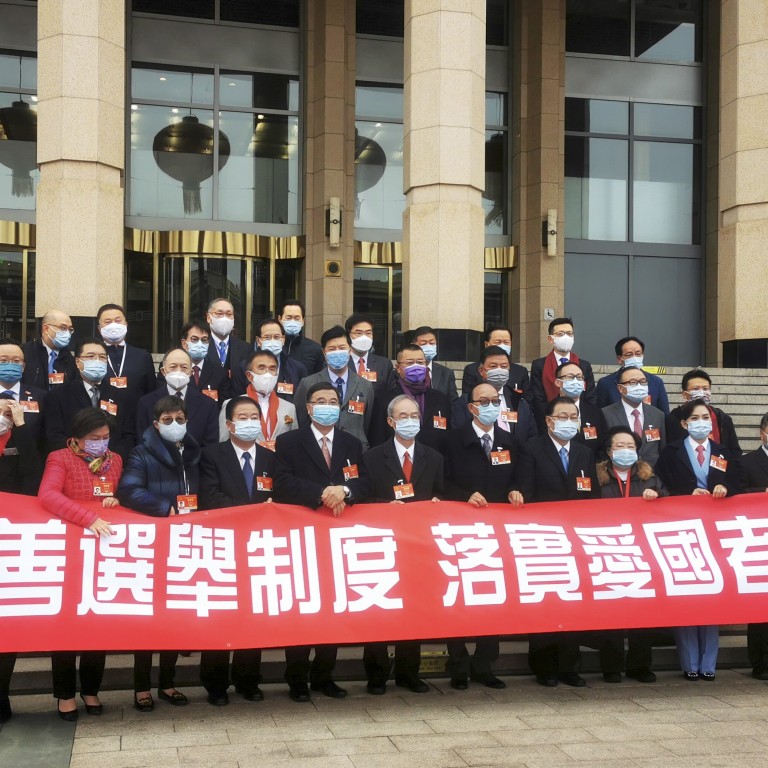
Hong Kong election reforms: overhaul to start with hefty powers for committee that picks city’s leader
- An expanded Election Committee will be able to pre-vet candidates for Legco polls and send own members to legislature
- The coming changes will necessitate amending Annexes I and II of the Basic Law, National People’s Congress Standing Committee vice-chairman says
Beijing’s plans for a drastic overhaul of Hong Kong’s electoral system will start with the Election Committee that selects the chief executive being given considerable powers to nominate all candidates for Legislative Council elections and send some of their own members to the legislature.
The size, composition and selection process of this committee, now made up of 1,200 representatives from four sectors and dominated by pro-Beijing loyalists, will also be revamped.
Announcing the radical shake-up to the city’s political system at Friday’s opening of the National People’s Congress’ plenary meeting, state leader Wang Chen said the pressing need for reforms was to get rid of “loopholes and deficiencies” that had enabled anti-China, destabilising elements to threaten national sovereignty and security.
“The size, composition and formation method of the Election Committee will be adjusted and improved. The chief executive will continue to be elected by the committee,” Wang, who is vice-chairman of the National People’s Congress Standing Committee (NPCSC), said.
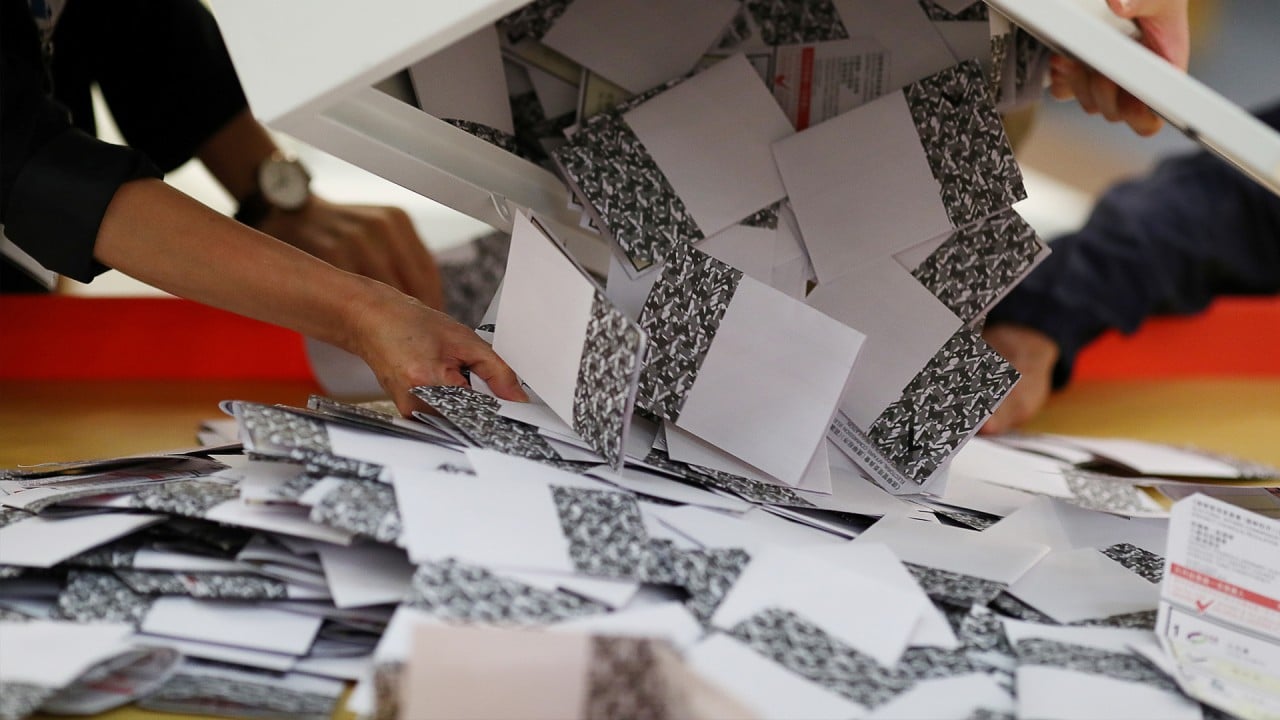
06:05
Two sessions: China’s parliament plans an overhaul of Hong Kong’s electoral system
“The Election Committee will be entrusted with the new function of electing a relatively large share of Legco members and directly participating in the nomination of all candidates for Legco,” he added.
“We need to establish a full mechanism to vet the qualification [of candidates in various elections], so we can form a new democratic electoral system with Hong Kong characteristics.”
Analysts said the changes Wang outlined would neuter Hong Kong’s opposition camp in its current form, as it would pack the Election Committee and Legco with ultra Beijing loyalists. The pan-democrats would lose all ability to be a powerful force in Legco or strategise to get enough votes to be kingmakers in the selection of the chief executive, they said.
Wang said Annexes I and II of the Basic Law would need to be amended while the main text of the city’s mini-constitution would remain unchanged, as he pledged that the changes were meant to strengthen its authority.
Earlier in the day, Premier Li Keqiang also vowed to strengthen the enforcement of the Chinese constitution and the Basic Law, and to guard against foreign interference in the city.
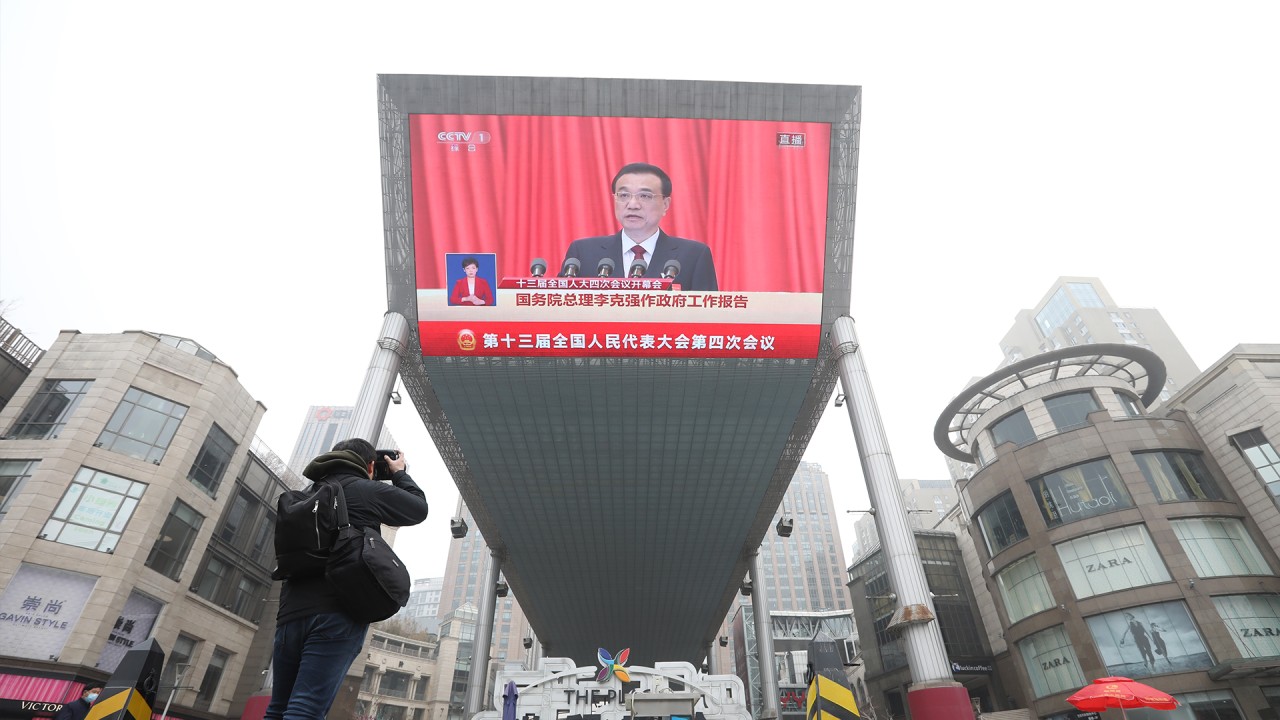
03:56
China’s 2021 National People’s Congress opens with Hong Kong’s electoral system on the agenda
The central government would “comprehensively and accurately implement the principles of ‘one country, two systems’, ‘Hong Kong people governing Hong Kong’, ‘Macau people governing Macau’, and ‘high degree of autonomy’,” Li said.
“We will improve the relevant systems and mechanisms of the two special administrative regions for enforcing the [Chinese] constitution and the Basic Law; and implement the legal systems and enforcement mechanisms of the two regions to safeguard national security.”
A look at Hong Kong elections and political reforms over two decades
As Beijing unveiled a draft of its next five-year plan on Friday, the central government also pledged to support Hong Kong in its role as an international financial, logistics and trade centre.
The changes announced by Wang followed the NPC’s announcement on Thursday that its plenary session would discuss a resolution to change Hong Kong’s electoral system.
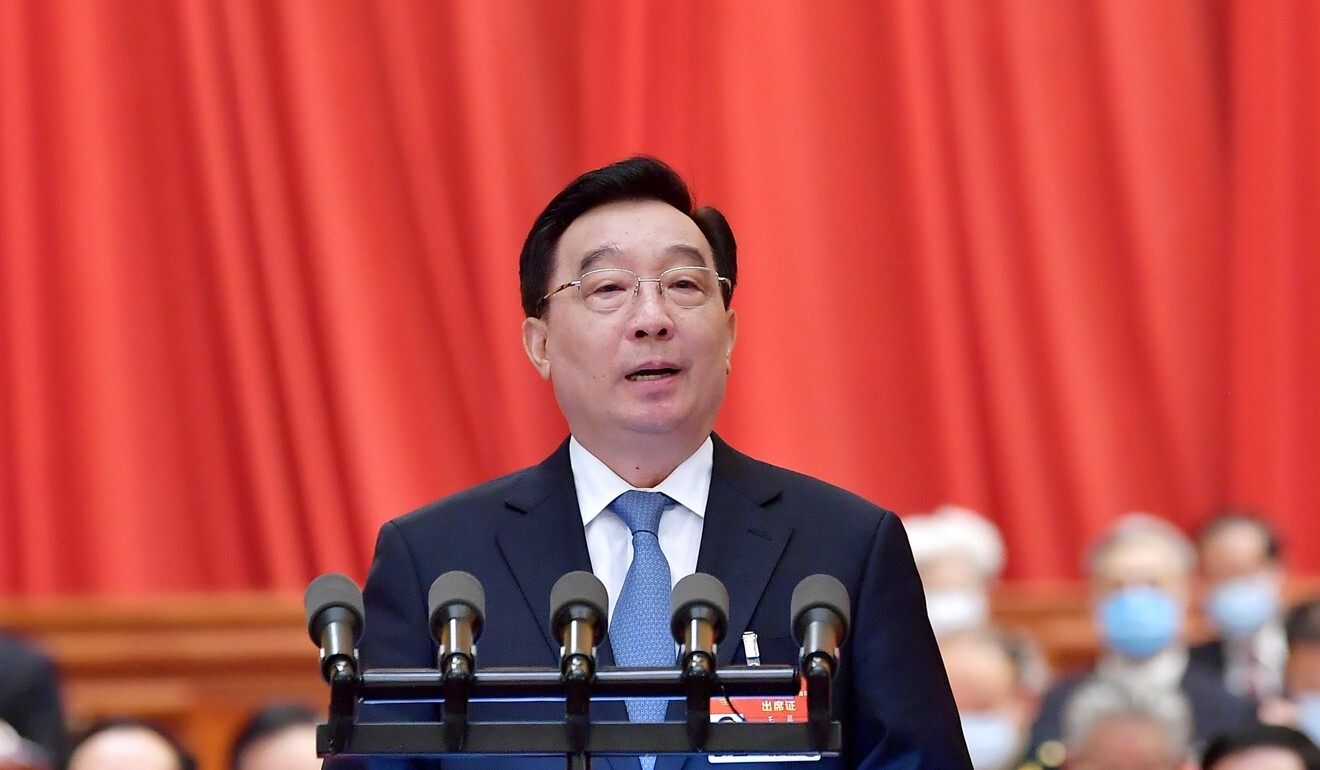
Sources earlier told the Post that under the plan, Legco could have 90 lawmakers, up from the current 70, while the Election Committee would be boosted to 1,500 members, with the additional seats filled by ultra loyalists.
It remained unclear the number of nominations aspiring Legco hopefuls would need to secure before they could run.
The same sources had earlier indicated the new composition of Legco could comprise a 30-30-30 share of seats among the geographical constituencies, which are votes based on residential areas, functional constituencies which are sector-based votes, and the new Election Committee members.
Wang’s reference that the Election Committee would have a “relatively large share of Legco members” had others suggesting that up to 40 seats could go to the group, giving them hefty powers to thwart any opposition.
Their presence in Legco would virtually guarantee that the opposition camp could never aspire to have the power to block bills or plot a “35-plus” strategy to win more than half the seats, as they tried to attempt last year.

Not a single opposition party held a press conference on it, unlike eight months ago when Beijing announced the imposition of the national security law.
But Hong Kong’s pro-establishment parties, business groups and politicians hailed the plan.
Hong Kong universities’ curricula should reflect security law by new semester: minister
Chief Executive Carrie Lam Cheng Yuet-ngor said she supported the NPC’s move, adding that the city had faced circumstances in recent years that were not conducive to the thorough implementation of one country, two systems.
“I fully respect that the central government takes the lead to improve the electoral system,” she said in a statement on Friday, adding that the city would speed up work to complete legislative amendments quickly as there were a number of elections in the coming 12 months.

The Legco elections, postponed last year because of the Covid-19 pandemic, are to be held in September but could be delayed for another year. Voting for the Election Committee is slated for December while the selection of the chief executive is to be held next March.
“We will prepare the necessary legislative amendments to the relevant local legislation in accordance with the revised annexes to the Basic Law for the scrutiny of the Legislative Council,” Lam said.
Tung Chee-hwa, the city’s first postcolonial leader, also issued a statement saying he believed most residents wanted to see Hong Kong administered by public officers who loved China and the city.
“They will insist on the root of ‘one China’ … and seek to resolve various socio-economic problems,” he said.
A spokesman for Beijing’s liaison office in Hong Kong said while the city’s political system needed urgent and necessary improvements, the central government would continue to listen to views from different sectors. “These changes are essential for the city to remain prosperous and stable,” he said.
In his speech, Wang hit out at “anti-China, troublemaking” elements in the Hong Kong political system, accusing them of pushing for independence.
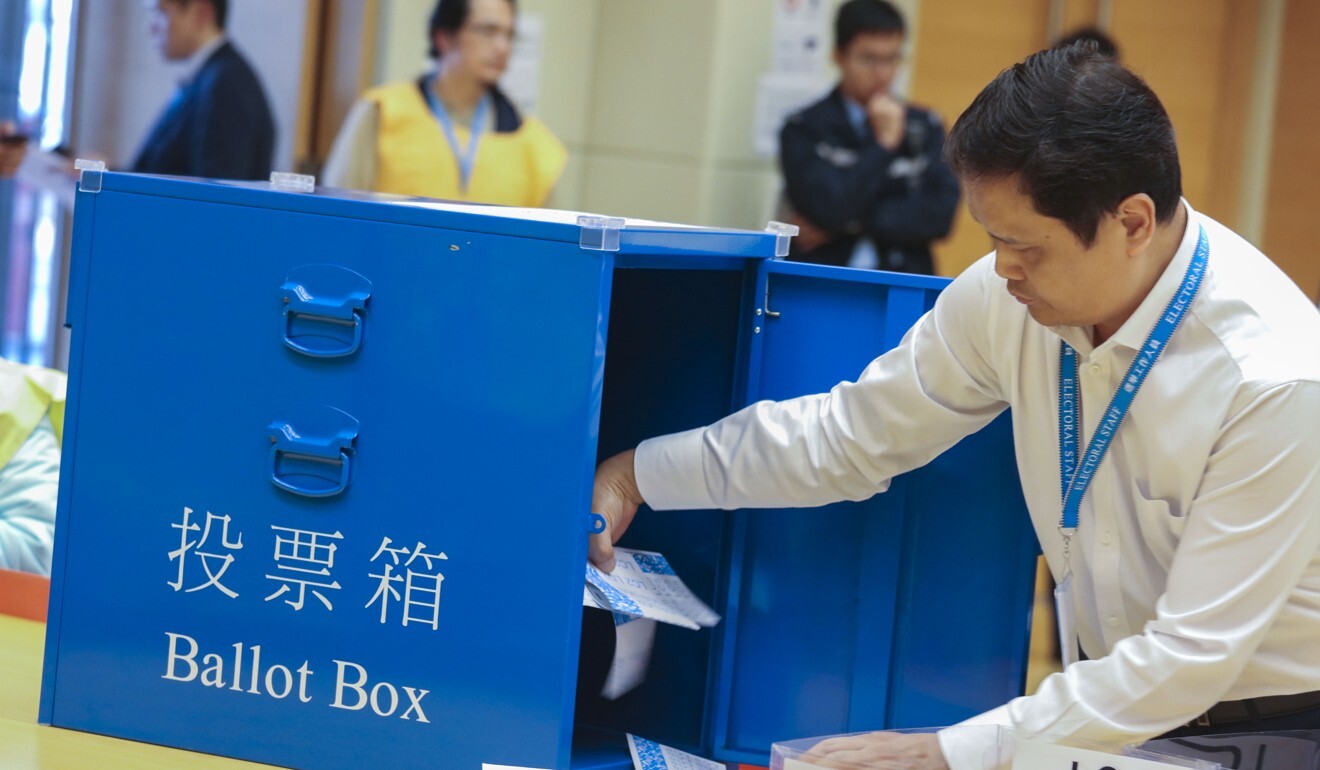
“Through platforms such as elections, the legislature, the district councils, and their public office, they have engaged in anti-China acts that caused trouble in Hong Kong … They also tried to seize power in Hong Kong through the Legco elections,” he said.
“Measures must be adopted to remove the risks in the system.”
Wang proposed that the NPC pass a resolution on Hong Kong reforms on March 11, and specify their fundamental principles and core elements.
The NPCSC would then amend the Basic Law’s Annexes I and II, which state the rules of the chief executive election as well as Legco’s electoral and voting rules.
How Beijing is now taking the lead in overhaul of Hong Kong’s election systems
Former Democratic Party chairwoman Emily Lau Wai-hing described Beijing’s proposals as “retrogressive”.
“It’s very regrettable. I can understand that Beijing was furious about the social unrest triggered by Carrie Lam’s extradition bill in 2019 … But I don’t think these millions of voters could endanger national security,” she said.
Lau said under Beijing’s plan, only members of the pro-establishment camp could qualify as candidates. “Voters’ participation would decrease, because the election would become meaningless for them when there’s no genuine choice.”
But Tam Yiu-chung, Hong Kong’s sole representative to the NPCSC, said Beijing rolled out the reforms after years of observations and regarded them as “reasonable”.
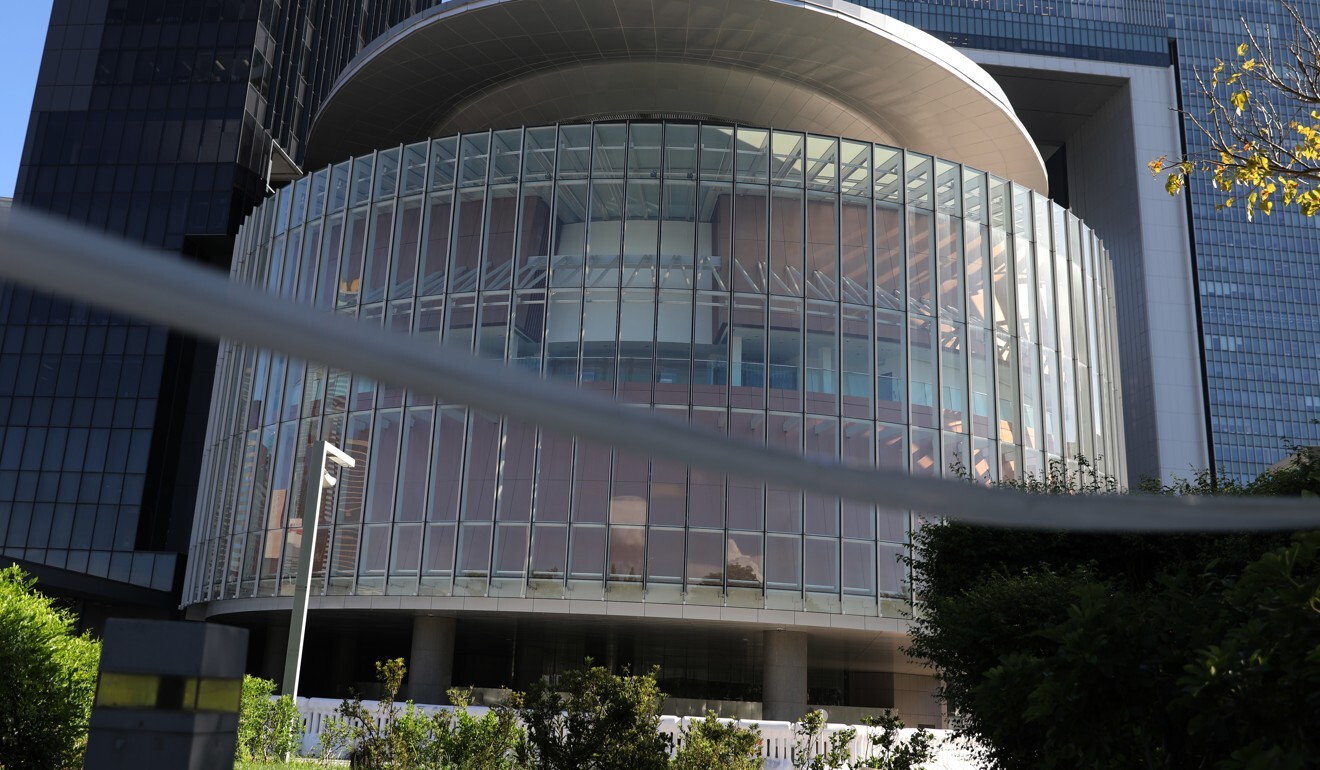
“From the experience concluded by Beijing over the past years, people who have ulterior motives must be banned from entering governing bodies, especially those opposing the central government and the Hong Kong administration,” he said. “Otherwise, deep-rooted problems cannot be solved.”
Tam also dismissed criticisms the electoral proposals were against the “principle of gradual and orderly progress” as stipulated in the Basic Law.
“The Basic Law also states that the ‘actual situation’ in Hong Kong should be considered in achieving universal suffrage. That’s a very important consideration,” he said.
Beijing’s moves on Friday prompted a stern statement from the European Union, which accused it of reneging on its promise to introduce universal suffrage. Urging Beijing to carefully consider the impact of the changes on democracy and freedoms, the EU warned that it stood ready to “take additional steps in response to any further serious deterioration of political freedoms and human rights in Hong Kong, which would be against China’s domestic and international obligations”.
Hong Kong’s last governor before the 1997 handover, Chris Patten, also condemned the changes, saying they marked the “biggest step so far to obliterate Hong Kong’s freedoms and aspirations for greater democracy under the rule of law”.
“This completely destroys the pledge of one country, two systems,” he said.
Hong Kong election systems in for overhaul, Legco polls delayed again
Maria Tam Wai-chu, vice-chairwoman of the Basic Law Committee, denied the reforms were a “regression of democracy” and pointed a finger at those who opposed previous electoral reforms.
“Beijing permitted Hong Kong to introduce universal suffrage in 2017. We got the chance, but it was rejected by those anti-China troublemakers in Hong Kong. It’s they who stole our plan,” she said.
Lau said under the proposed reforms Tam referred to, the city’s leadership election would not be a genuine poll, as only two or three candidates could run with the blessing of at least half of the Election Committee’s 1,200 members.
“So if Beijing gets so tough on this now, Hong Kong people will be so sad that they either leave the city or remain silent on political issues,” she said.

